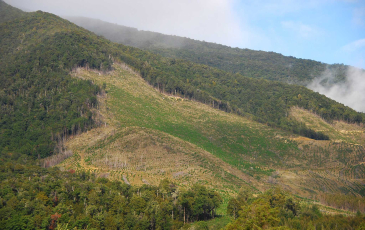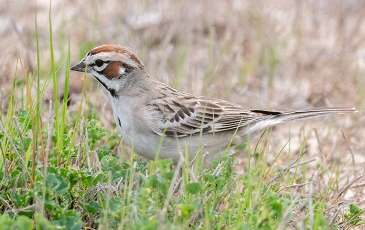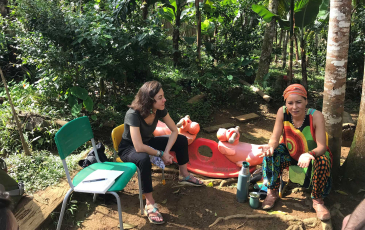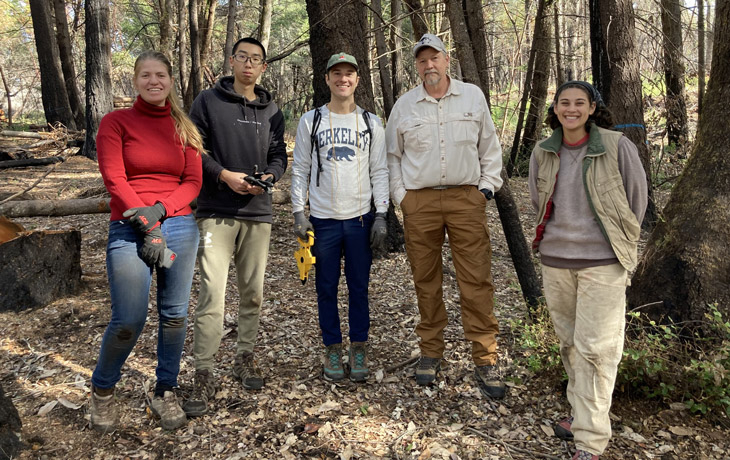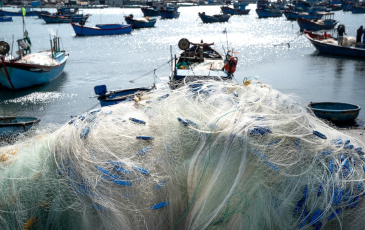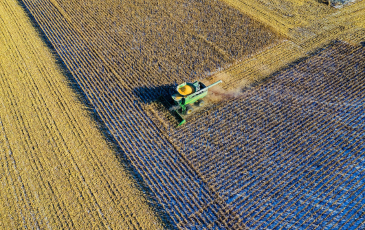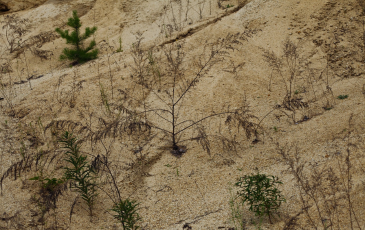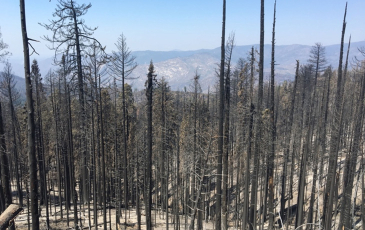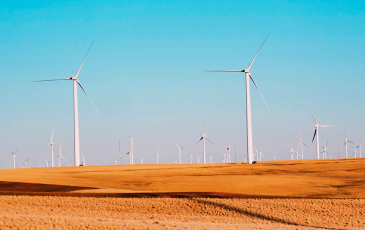Sustained price hikes and supply issues caused by the war may fuel a new wave of large-scale land acquisitions.
Climate change, urbanization drive major declines in L.A.’s birds
In a study published today in Science Advances, ESPM researchers reveal how land use change has amplified—and in some cases mitigated—the impacts of climate change on bird populations in California.
In the rainforests of Borneo, people and wild pigs are fundamentally linked
The study explores the deep ties between people and pigs in Borneo, a connection the authors say underscores the importance of understanding our broader link to nature.
Recognizing Indigenous land rights reduced deforestation in Brazil’s Atlantic Forest
New research suggests formal recognition of rights of Indigenous peoples to ancestral territories could protect and restore a threatened biodiversity hotspot covering 17 states outside the Amazon.
Monitoring biodiversity in the post-fire Santa Cruz Mountains
ESPM professor Kip Will is leading a SPUR project to help monitor the effects of tree and underbrush removal on arthropod biodiversity in the post-fire Santa Cruz Mountains.
Would you pay more for “COVID Safe” meat?
Two recent ARE undergraduates break down their research on consumer choice and willingness to pay during the height of the COVID-19 pandemic.
Mapping your neighborhood emissions
Research by UC Berkeley’s CoolClimate Network helped New York Times reporters map neighborhood emissions across the United States.
Clean Air Act dramatically cut vehicle air pollution, but equity a concern
A new study found that the 1972 Act has driven spectacular decreases in pollution from U.S. passenger vehicles, but poses a challenge for pollution policy in low-income communities.
New Compact Genome Editors Found in Viruses
Researchers in ESPM and PMB have identified a variety of potential CRISPR-based genome-editing tools in viruses, according to new findings published in Cell.
Climate change threatens Sierra Nevada stream ecosystems
A team of University of California scientists found that high-mountain streams may be more vulnerable to droughts and heatwaves than previously thought.
Collective action and cooperation among users of common-pool resources
A new study co-authored by Paolo D’Odorico assesses how shared goals and information on resource levels can encourage cooperation and reduce resource depletion.
Agriculture and the Social Cost of Carbon
ARE professor Maximilian Auffhammer breaks down how a new major study on global climate damages shows significant impacts to agriculture.
Study highlights the complexity of dryland dynamics under a changing climate
ESPM Professor Paolo D’Odorico is co-author of a review published in today the journal Nature Climate Change.
Widespread forest disturbances hold potentially grave consequences for wildlife
A new study by Rausser College faculty and the U.S. Forest Service suggests mature forest habitats in California may be susceptible to complete loss without intervention.
Women in STEM seminar series: Cecilia Martinez-Gomez
Martinez-Gomez, an assistant professor in the Department of Plant and Microbial Biology, breaks down her research on bacterial metabolism and offers career advice for aspiring scientists.
Africa needs country-specific narratives for a clean energy future
Recent research co-authored by ERG professor Dan Kammen calls for a shift in how politicians, funders, and researchers address the energy transition in the African continent.
Like the Borg of Star Trek, these ‘aliens’ assimilate DNA from other microbes
A type of transferrable DNA structure recently identified by ESPM and PMB researchers appears to play a role in balancing atmospheric methane.
Does Better Information Increase Fishery Profits?
ARE researchers recently found that better information about the location and size of fish populations would decrease profits for the world's largest fishery.
Why some countries are leading the shift to green energy
A study appearing in Science, co-authored by ESPM professor Jonas Meckling, identifies the political factors that allow some countries to take the lead while others lag behind.
Making scientific data more discoverable
ESPM professor Carl Boettiger is part of a $3.2 million project focused on standardizing how scientific data is described.


